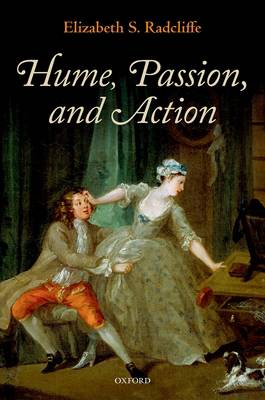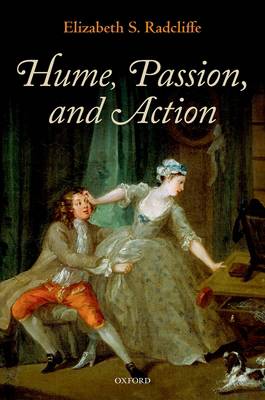
- Afhalen na 1 uur in een winkel met voorraad
- Gratis thuislevering in België vanaf € 30
- Ruim aanbod met 7 miljoen producten
- Afhalen na 1 uur in een winkel met voorraad
- Gratis thuislevering in België vanaf € 30
- Ruim aanbod met 7 miljoen producten
Zoeken
Omschrijving
David Hume's theory of action is well known for several provocative theses, including that passion and reason cannot be opposed over the direction of action. Elizabeth S. Radcliffe defends an original interpretation of Hume's views on passion, reason, and motivation which is consistent with other theses in Hume's philosophy, loyal to his texts, and historically situated. She challenges the now orthodox interpretation of Hume on motivation, presenting an alternative that situates Hume closer to "Humeans" than many recent interpreters have. Part of the strategy is to examine the thinking of the early modern intellectuals to whom Hume responds. Most of these thinkers insisted that passions lead us to pursue harmful objects unless regulated by reason; and most regarded passions as representations of good and evil, which can be false. Understanding Hume's response to these claims requires appreciating his respective characterizations of reason and passion. The author argues that
Hume's thesis that reason is practically impotent apart from passion is about beliefs generated by reason, rather than about the capacity of reason. Furthermore, the argument makes sense of Hume's sometimes-ridiculed description of passions as "original existences" having no reference to objects. The author also shows how Hume understood morality as intrinsically motivating, while holding that moral beliefs are not themselves motives, and why he thought of passions as self-regulating, contrary to the admonitions of the rationalists.
Hume's thesis that reason is practically impotent apart from passion is about beliefs generated by reason, rather than about the capacity of reason. Furthermore, the argument makes sense of Hume's sometimes-ridiculed description of passions as "original existences" having no reference to objects. The author also shows how Hume understood morality as intrinsically motivating, while holding that moral beliefs are not themselves motives, and why he thought of passions as self-regulating, contrary to the admonitions of the rationalists.
Specificaties
Betrokkenen
- Auteur(s):
- Uitgeverij:
Inhoud
- Aantal bladzijden:
- 256
- Taal:
- Engels
Eigenschappen
- Productcode (EAN):
- 9780199573295
- Verschijningsdatum:
- 21/08/2018
- Uitvoering:
- Hardcover
- Formaat:
- Genaaid
- Afmetingen:
- 236 mm x 165 mm
- Gewicht:
- 557 g

Alleen bij Standaard Boekhandel
+ 201 punten op je klantenkaart van Standaard Boekhandel
Beoordelingen
We publiceren alleen reviews die voldoen aan de voorwaarden voor reviews. Bekijk onze voorwaarden voor reviews.











